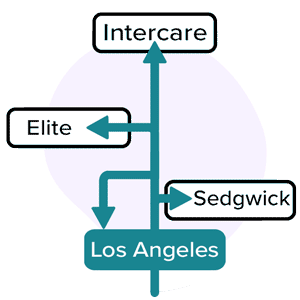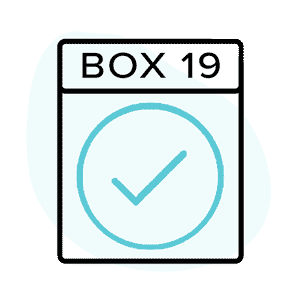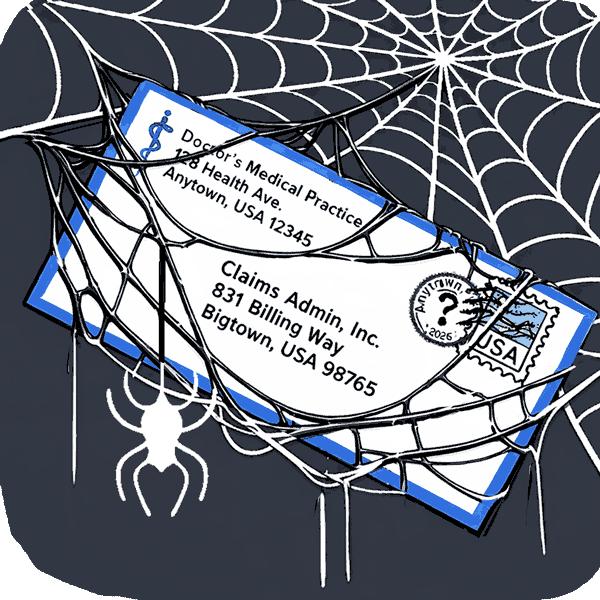Tristar Rejects e-Bills: A Provider Alert

Tristar Risk Management, a Third-Party Administrator (TPA), chooses not to adhere to California workers’ comp law.
California law mandates that claims administrators must accept electronic bills for all treatment provided to injured workers. Yet, Tristar fails to accept e-bills for all of the clients for which Tristar acts as claims administrator. By failing to accept e-bills for the entirety of its client list, Tristar forces many providers to submit paper bills.
Essentially, Tristar complies with California law when they feel like it. As such, daisyBill filed 8,271 Audit Complaints with the California Division of Workers’ Compensation (DWC) to report how Tristar selectively adheres to this crucial e-billing requirement.
Tristar’s Contorted e-Billing
As we explain in detail in this article, for workers’ comp e-billing to work properly, the provider’s e-billing software must send the e-bill to the correct electronic “address.” This “address” includes:
- The claims administrator’s clearinghouse, which accepts and responds to e-bills on the claims administrator’s behalf, and
- The Payer ID that the clearinghouse assigned to the claims administrator.
Jopari is Tristar’s designated clearinghouse. Instead of assigning a single Payer ID to Tristar, Jopari has assigned Tristar two separate Payer IDs:
- Payer ID J1491 - For 279 ‘REM Employers’ (REM is a former TPA that Tristar acquired in 2012) for which Tristar acts as TPA, and
- Payer ID 41556 - For 291 other employers and workers’ comp insurers for which Tristar acts as TPA
Having two Tristar Payer IDs puts an administrative burden on the provider, who must determine which Tristar Payer ID is correct for each bill. Sending an e-bill to Tristar requires the provider’s administrative staff to take the following steps:
- Search both lists for the injured worker’s employer. The provider can send an e-bill using the appropriate Payer ID if the employer's name is found.
- If the employer’s name is not found on either Jopari list, the provider must mail or fax a paper bill to Tristar.
daisyBill reached out to Jopari to explain that this contorted e-billing, using multiple Payer ID lists (that collectively do not include all of Tristar's clients), leaves Tristar out of compliance with California law. daisyBill requested that Tristar/Jopari develop a system that would bring the TPA into compliance. Jopari declined, stating: “[for] Tristar, you submit by employer name. There is no generic Payer ID for Tristar.”
Bottom Line: Tristar/Jopari thumbed its collective nose at providers (no shock there), and at California law (also not remotely shocking).
8,271 Audit Complaints Filed
When a daisyBill provider cannot find the name of the injured worker's employer among the combined 570 employers listed on Joapri’s two Payer ID lists, daisyBill faxes a paper bill to Tristar. This week, daisyBill submitted 8,271 Audit Complaints to the DWC, representing each bill daisyBill was forced to fax to Tristar in 2022.
We cannot say whether the failure is on Tristar’s end or Jopari’s. But Tristar should remember that in all cases, the claims administrator (Tristar) is legally responsible for compliance, regardless of the clearinghouse.
Meanwhile, see below how daisyBill software helps providers manage the current, convoluted Tristar/Jopari system.
How daisyBill Manages Tristar’s Non-Compliance
daisyBill software makes determining the correct Tristar Payer ID relatively painless for providers:
- When the provider selects Tristar as the claims administrator, daisyBill prompts the provider to select the injured worker’s employer’s name.
- If a name is selected, daisyBill transmits an e-bill to Jopari using the correct Payer ID.
The big problem: some employers are not listed on either of the Jopari lists (and therefore, do not have a Payer ID). For these unlisted Tristar employers, the provider must select ‘Not Listed.’ daisyBill then transmits these bills to Tristar via fax.
We hope the DWC will offer Tristar a stern reminder and make it abundantly clear that adhering to California law is not optional.
Protect your practice. Harness the power of daisyBill software, data, and expertise for faster, better workers’ comp billing. Reach out to learn how we can help.
CONTACT US
DaisyBill provides content as an insightful service to its readers and clients. It does not offer legal advice and cannot guarantee the accuracy or suitability of its content for a particular purpose.








